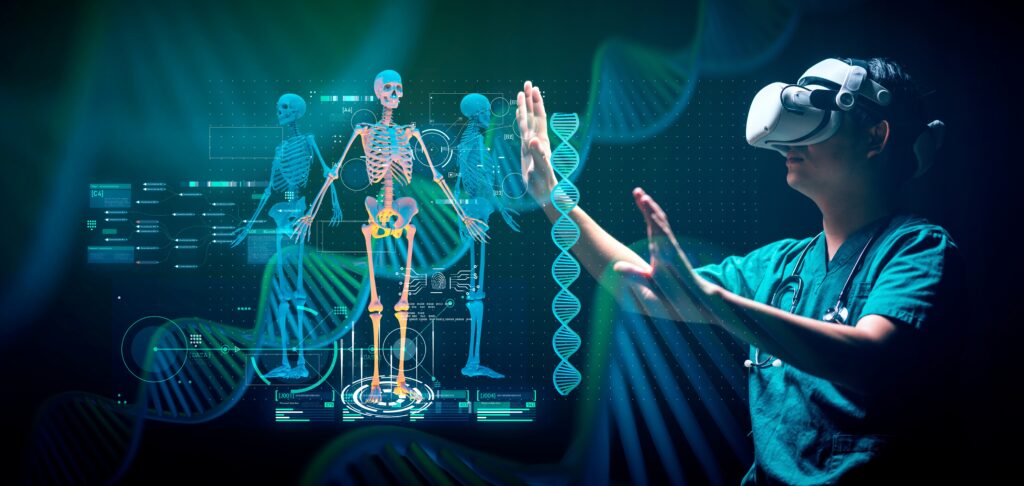
AI-Powered Systems Revolutionizing HealthcareAI-Powered Systems Revolutionizing Healthcare In the rapidly evolving landscape of healthcare, artificial intelligence (AI) is emerging as a transformative force, revolutionizing every aspect of medical care. Diagnosis and Treatment AI algorithms can analyze vast amounts of medical data, including patient records, imaging scans, and test results, to identify patterns and make accurate diagnoses. They can assist physicians in making more informed decisions, reducing diagnostic errors, and personalizing treatment plans. For instance, AI-powered systems can detect early signs of cancer, epilepsy, or cardiovascular disease, allowing for timely intervention. Drug Discovery and Development AI-powered systems can screen millions of potential drug molecules to identify promising candidates for clinical trials. They can also simulate clinical trials to predict the efficacy and safety of drugs, reducing the time and cost of drug development. By accelerating the drug discovery process, AI can bring innovative treatments to patients faster. Precision Medicine AI enables the creation of personalized treatment plans tailored to individual patients’ genetic makeup and health profiles. By analyzing genetic data, AI algorithms can identify genetic predispositions and predict the response to specific medications. This approach leads to more effective and individualized therapies, reducing side effects and improving outcomes. Medical Imaging and Analysis AI-powered systems can enhance medical imaging by detecting subtle abnormalities and quantifying them objectively. They can analyze X-rays, CT scans, and MRIs to identify tumors, fractures, or other anomalies that may be difficult to detect by human eyes. This improved accuracy aids in diagnosis, treatment planning, and monitoring patient progress. Patient Monitoring and Care AI-powered wearable devices and sensors can continuously monitor patients’ vital signs, physical activity, and other health metrics. These devices provide real-time data to physicians, enabling remote monitoring and early detection of potential health issues. AI algorithms can analyze this data to identify patterns and predict adverse events, facilitating timely intervention. Cost Reduction and Efficiency AI-powered systems can automate administrative tasks, such as medical record processing, appointment scheduling, and insurance billing. This reduces administrative burden, allowing healthcare providers to focus on patient care. Additionally, AI can optimize resource allocation, reduce unnecessary tests and procedures, and streamline clinical workflows, leading to cost savings and improved efficiency. Challenges and Future Prospects While AI holds immense promise for healthcare, several challenges need to be addressed, including data privacy, algorithm bias, and the need for healthcare professionals to adapt to new technologies. Rigorous ethical guidelines and regulatory frameworks are crucial to ensure the responsible and equitable use of AI in healthcare. As research continues and AI technology advances, we can expect to see even more transformative applications in healthcare. AI-powered systems will empower physicians, improve patient outcomes, and make healthcare more accessible and affordable. The future of healthcare is bright with the potential of AI to revolutionize the industry and enhance human well-being.
Posted inNews